Combating energy poverty: why are women on the front line?
Maëva Bréau is project and gender advocacy officer for the international eco-feminist network Women Engage for a Common Future (WECF) and Marie-Maud Gérard is energy, building and solidarity programme officer for the international NGO Geres.
Together, they take a look at the challenges faced by women in the fight against energy poverty and the means of action they are trying out, especially via the EmpowerMed programme to which they and other stakeholders are contributing.
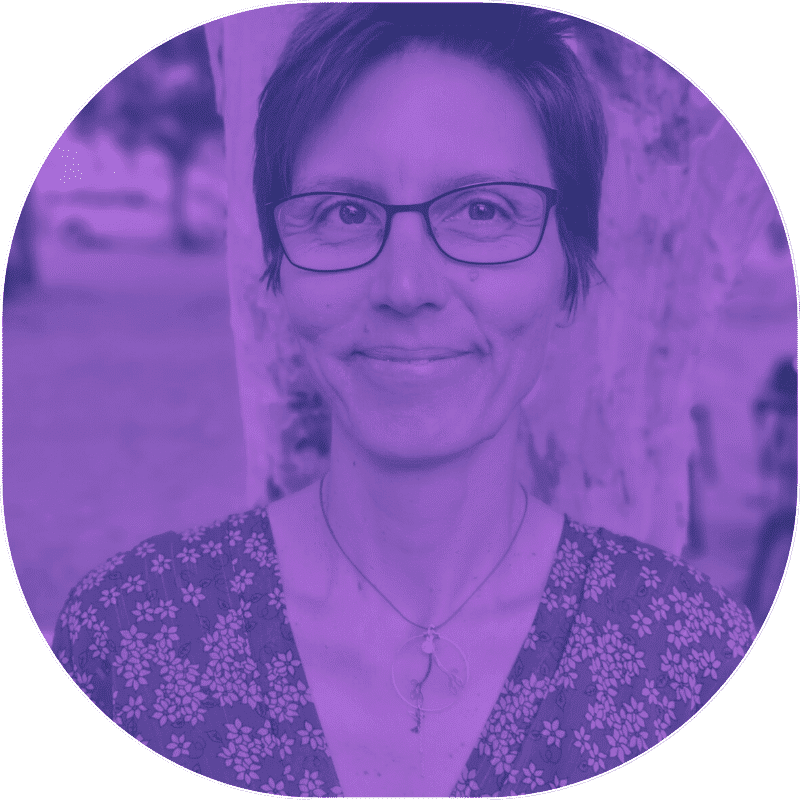
Marie-Maud Gérard
Having worked for Geres for several years, as energy efficiency adviser and then leader of the Energy & Environment project, I am now in charge of the Energy, Building and Solidarity Programme. In particular, my role within Geres Europe Mediterranean team is to develop and implement projects designed to bring about an inclusive, supportive energy transition: combating energy poverty, involving residents in energy sobriety initiatives, mobilizing local stakeholders and enhancing their skills to ensure that no one is left out of this vitally important energy transition.
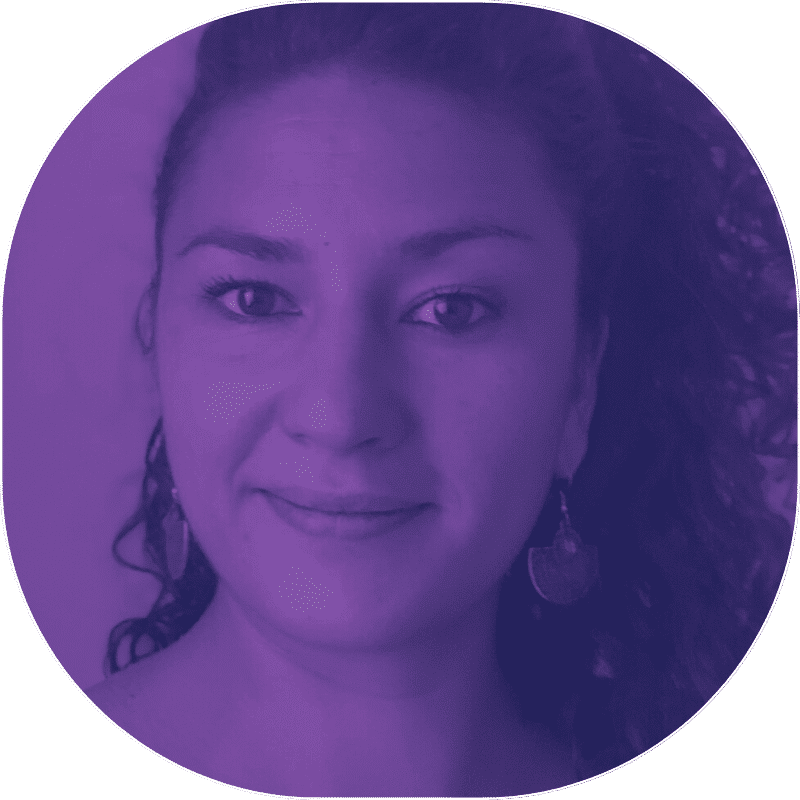
Maeva Bréau
I have been project and gender advocacy officer with WECF France for around four years. There are two aspects to my role: co-ordinating projects run at international level by our field partners who strive on a daily basis to strengthen and obtain recognition of women’s place in the fight against the effects of climate change in their countries, while at the same time engaging in awareness and advocacy campaigns for more inclusive climate policies reflecting women’s particular needs and concerns. This work draws on our partners’ expertise and field knowledge.
In what way are energy poverty and gender inequality issues connected?
Maëva Bréau
As Marie-Maud has noted, energy poverty is connected with social and economic vulnerability. In France and Europe more generally, women run a greater risk of living in poverty, for many different reasons relating to the stereotypical division of roles between women and men within households.
Even today, women are paid 28.5% less than men for the same hours of work and they are also over-represented in part-time contracts or “unpaid” work (domestic chores, caring for older family members or children, etc.). This will have a significant impact on their pensions in later life.
Moreover, women live longer than men and are over-represented as heads of single-parent households, with responsibility for childcare. The accumulation of these effects means that, in 2017, 17% of women-headed households were experiencing energy poverty as against 10% of the general population.
Alongside these economic and socio-cultural aspects, there are also differences in physiology (women are more sensitive to heat and cold) and impact in terms of mental and physical health (many vascular and respiratory diseases are caused by domestic pollution).
ECO-FEMINISM is a word we hear at WECF, but how can we define it?
Maëva Bréau
There is no consensus over the definition of eco-feminism, but the concept nevertheless rests on a commonly acknowledged fact: that there are indissociable links between the domination of nature and the domination of women in our capitalist system.
Eco-feminism is therefore an intersectional political and philosophical movement, which is also based on fighting for the ideal of a circular, participatory, self-managed society of direct democracy, opposed to all hierarchies (of sex, class, ‘race’, origin and so on) and to the mass exploitation of our natural resources and people.
In practice, it means bringing social justice and gender concerns to bear on all environmental issues.
Do you have any figures about the situation in France and the Mediterranean as a whole?
Marie-Maud Gérard
In Europe, it is estimated that more than 57 million people suffer from the cold in winter and 104 million from the heat in summer, while 52 million are behind with payment of their energy bills.
In France, according to the latest figures from the National Energy Poverty Observatory, 20% of French people suffered from cold for at least twenty-four hours over the 2020-2021 winter, over a third of them for financial reasons.
Statistics specifically showing the number of women affected by this phenomenon are almost non-existent at present, underlining the importance of the EmpowerMed programme.
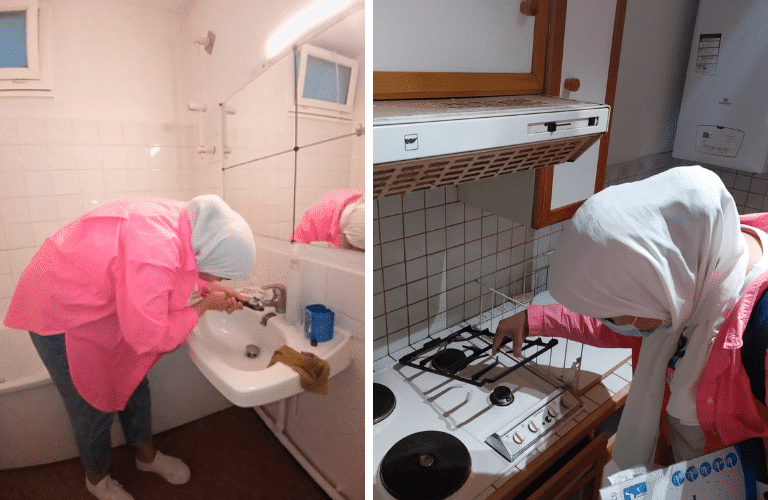
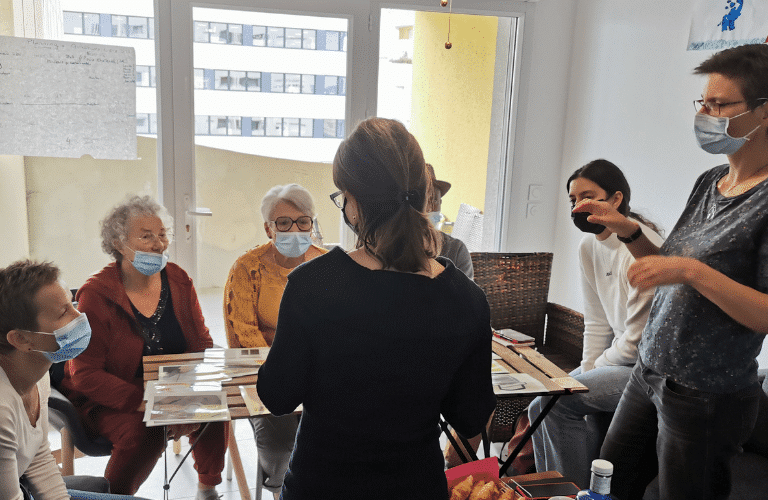
So, can you tell us what the “EMPOWERMED” programme is about and what changes you hope it will make? Especially when it comes to advocacy?
Marie-Maud Gérard
EmpowerMed is a consortium involving 9 European partners and projects in 6 countries around the Mediterranean, from Spain to Albania.
EmpowerMed aims both to develop ways to combat energy poverty in the field, by involving and strengthening households, starting with women who are affected to a greater extent, and to build on the results obtained to come up with recommendations for advocacy from local through to European level.
The focus of the project’s advocacy is to defend a Mediterranean vision of the fight against energy poverty, including by helping to keep everyone comfortable at home in the summer and highlighting the role of women as vectors of change.
The policy recommendations of EmpowerMed put forward a more inclusive definition of energy poverty, encourage a greater focus on the link with gender and especially the development and monitoring of indicators revealing this problem (numbers of women affected, number of women among the beneficiaries of the aid provided, as well as numbers of young people, people with disabilities, etc.).
Also worth reading : escaping energy poverty in the Provence-Alpes Côte d’Azur region
Maëva Bréau
For my part, I can see a twofold objective for the EmpowerMed project:
- Improving the living conditions of those most affected by energy poverty, which has been done by means of workshops offering easy to apply advice and by studying and reporting on the kinds of aid and subsidies available to help with the housing energy transition; while
- Mobilizing policymakers at local, national and international level to include all the dimensions of energy poverty (gender, health, etc.) in strategies to combat these problems.
Policies are still far too “gender blind”, but how can fair strategies and policies be drawn up if the needs and specific concerns of half the population are not taken into account?
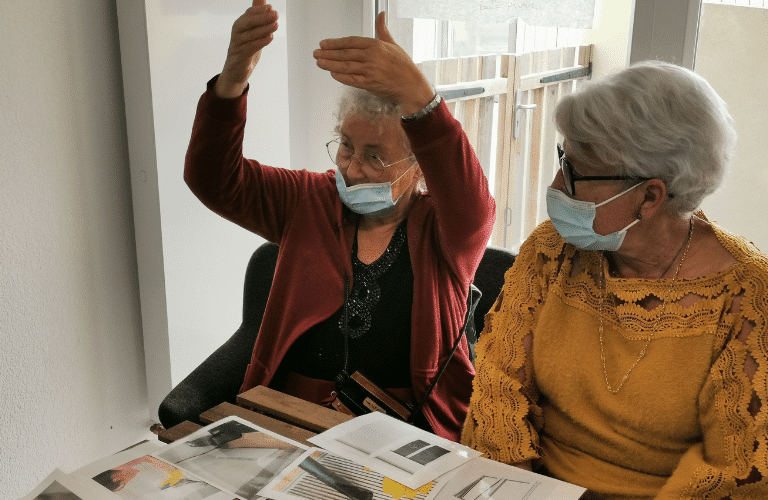
And what is the score now?
Marie-Maud Gérard
As of today, more than 400 people have already benefited, in Marseille, from support under the EmpowerMed project, including more than 250 women.
Which means:
- information to check that their energy deals are suitable;
- changes in energy supplier;
- installation of energy-efficient appliances in homes;
- personalized advice on possible work to be carried out;
- approaching landlords to suggest housing improvements; and
- beyond the project, carrying out essential works for households encountering difficulties in terms of thermal comfort: installation of ceiling fans, plumbing repairs, insulation of heating pipes, improvements in ventilation and so on
To give a concrete example: a retired woman, living alone in a house in an urban area, told us during a collective workshop entitled “health and energy in my home” that she was suffering because the air in her house was too humid and she also had high energy bills despite her efforts to economize.
This led us to carry out an energy advice visit and suggest work to install a simple ventilation system and lag her heating pipes in an unheated part of her home. Humidity was reduced by 20% immediately and she was really pleased that her energy bills would go down. We shall contact her in the near future to check on her bills.
The project is currently in the phase of evaluation of field operations and advocacy to get things moving in the direction of a more inclusive energy transition at local, national and European level.
A few words in conclusion? A call for mobilization?
Marie-Maud Gérard
Support Geres! You can also join Geres volunteers taking part in action to mobilize for a more inclusive energy transition.
Maëva Bréau
If you would like to support WECF France, you can follow us on our website and social media, talk about our activities to people around you and join our association!
WOULD YOU LIKE TO TAKE ACTION
AND SUPPORT WHAT WE DO?
Tell us who you are and find your means of action.
CITIZENS
Because Climate Solidarity is a challenge we face collectively, Geres gives you the possibility to make a difference. TAKE ACTION AS A CITIZENPRIVATE SECTOR
As a business executive, an employee or a customer, you have the power to take action in your everyday life. TAKE ACTION AS A COMPANYLOCAL AND INSTITUTIONAL ACTORS
Support our actions in France and internationally and become an agent of change at our side. TAKE ACTION AS AN INSTITUTIONFOUNDATIONS
By supporting Geres, you contribute to the implementation of innovative and concrete actions. TAKE ACTION AS A FOUNDATIONVOUS SOUHAITEZ AGIR EN FAVEUR DE LA SOLIDARITÉ
CLIMATIQUE ET SOUTENIR NOS ACTIONS ?
Dites-nous qui vous êtes et découvrez vos moyens d’action
CITOYEN·NE·S
Parce que la Solidarité climatique est l’affaire de toutes et tous, le Geres vous donne les clés pour passer à l’action.
ENTREPRISES
En tant que dirigeant·e d’entreprise, employé·e ou client·e responsable, vous avez le pouvoir d’agir au quotidien.
INSTITUTIONS & COLLECTIVITÉS
Soutenez nos actions en France et à l’international et devenez un acteur de la Solidarité climatique.
FONDATIONS
En vous engageant aux côtés du Geres, vous contribuez à la mise en œuvre d’actions innovantes et concrètes.
